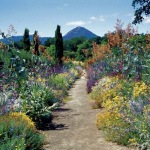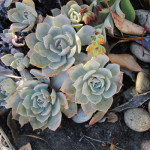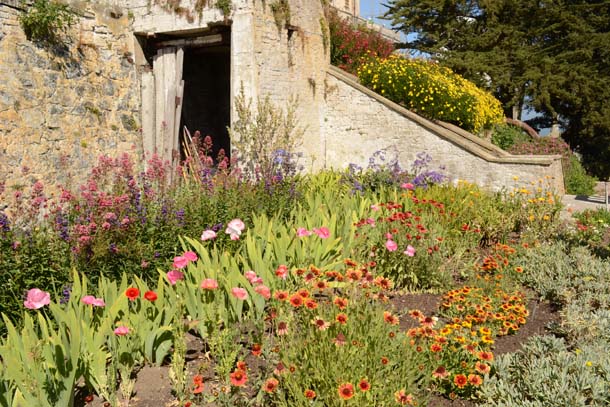Award-winning master gardener Kate Frey believes gardens should be for more than just show.

Sign up for our free weekly newsletter and understand everything better!

Award-winning master gardener Kate Frey believes gardens should be for more than just show.

Over five years ago, Nalani and Anna Heath-Delaney, ditched their water guzzling lawn and planted a colorful and diverse native plant garden. They have since saved water, provided habitat for local species and created a native plant sanctuary. With the current drought, now is the perfect time to consider transitioning your garden and “going native.”

A resident of Saratoga, Madeline Morrow sits on the Steering Committee of the 2013 “Going Native” tour, a two-day extravaganza of 60 open gardens around Santa Clara, including hers. The event, hosted by the Santa Clara chapter of the California … Read more

From afar, this windswept island in the middle of the San Francisco Bay appears so rugged that you’d expect to find only century plans and eucalyptus. But Alcatraz is alive with color.
-150x150.jpg)
Google “mulch” and you’ll find university websites from Alaska to Florida touting mulch as one of the most environmentally friendly and effective tools for improving a backyard garden. But that mulch keeps native bees from digging their nests…
-150x150.jpg)
Leafcutters, diggers, carpenters, and masons… At first glance that may look like a directory for building contractors. Add the miners, cuckoos, and sweats and what you have isn’t a list of tool-bag clad builders, but some of the 1,600 known species of native bees in California. Here’s how you can make them at home in your garden.

Insects have fascinating lives and behaviors most of us never notice. But if you spend even 15 minutes watching bees or butterflies, you’re sure to be drawn into their worlds and want to know more about them. Here are some … Read more
-150x150.jpg)
April and May are great months for getting to know native plants through native plant sales and garden tours held around the Bay Area. And not only gardeners benefit: The proceeds from these sales fund valuable conservation work all over the region.
-150x150.jpg)
Designing California Native Gardens: The Plant Community Approach to Artful, Ecological Gardens, by Glenn Keator and Alrie Middlebrook, UC Press, 2007, 352 pages, $27.50 www.ucpress.edu The decades-long drought is definitely over. Though we still have to cope with the past … Read more
-150x150.jpg)
The Landscaping Ideas of Jays: A Natural History of the Backyard Restoration Garden, by Judith Larner Lowry, UC Press, 2007, 292 pages, $24.95 www.ucpress.edu Most people don’t think of restoration gardening as an option for city dwellers. The plants that … Read more